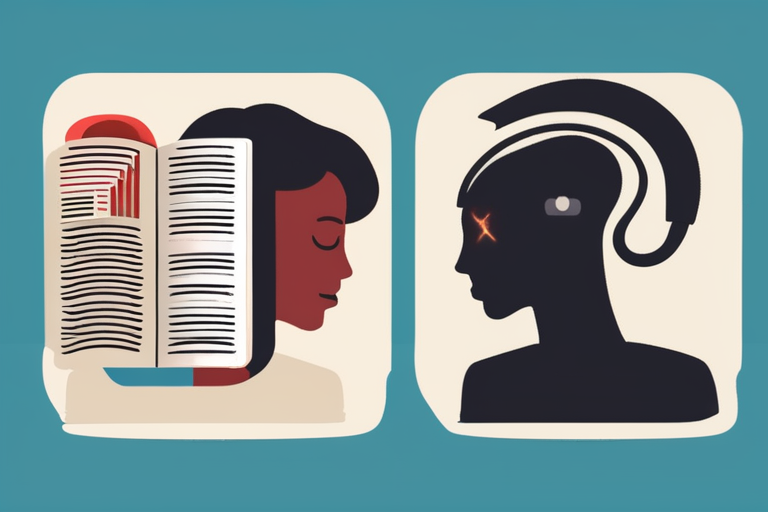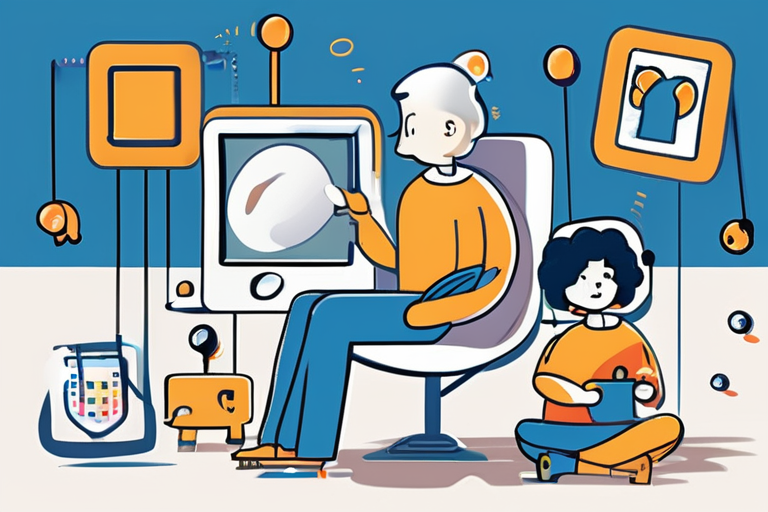The Great Debate: Is Reading Always Better for Your Brain Than Listening to Audiobooks?
A recent study has sparked a heated discussion among educators and cognitive scientists about the benefits of reading versus listening to audiobooks. While both formats can provide valuable knowledge, research suggests that the medium may indeed shape the mind in subtly different ways.
According to Tony Anderson, an avid reader and author, "When I dug into the science, I found that the format does matter." Anderson's findings are supported by a growing body of evidence indicating that reading and listening to information can change how our brains process and respond to it. A study published in the journal Psychological Science found that readers tend to engage more deeply with material when they read it themselves, rather than listening to an audiobook.
The benefits of reading are well-documented. Research has linked good literacy in childhood with improved physical and mental health, as well as longer life expectancy. Reading is thought to exercise three important cognitive processes: deep reading, which involves drawing connections between sections of the material; reflection on its relevance to our own lives; and asking probing questions about its content.
However, listening to audiobooks can also have benefits. A study published in The Journal of Educational Psychology found that students who listened to audiobooks showed improved comprehension and retention compared to those who read print materials. Dr. Maria Rodriguez, a cognitive scientist at the University of California, Berkeley, notes that "listening to audiobooks can be just as effective as reading for some people, especially those with visual impairments or dyslexia."
The debate highlights the importance of considering individual learning styles and preferences when it comes to consuming information. As Anderson points out, "The format doesn't matter; what matters is that we're engaging with the material in a way that works for us." The latest developments in AI-powered reading tools and audiobook platforms are also changing the landscape, offering new options for readers and listeners alike.
In conclusion, while the debate rages on, one thing is clear: both reading and listening to information can have cognitive benefits. As educators and policymakers consider how best to support students' learning needs, it's essential to recognize that individual differences in learning styles and preferences play a significant role in determining what works best for each person.
Background: The debate about the benefits of reading versus listening to audiobooks has been ongoing for several years, with some arguing that reading is superior due to its ability to engage readers more deeply. Others contend that listening to audiobooks can be just as effective, especially for those with visual impairments or dyslexia.
Additional perspectives: Dr. Rodriguez notes that "the key is not the format itself but how we engage with the material." Anderson agrees, stating that "what matters most is that we're enjoying a book, regardless of whether it's in print or audio."
Current status and next developments: The debate continues to evolve as new research emerges and AI-powered reading tools become increasingly sophisticated. As educators and policymakers consider the implications for education policy, one thing is clear: individual differences in learning styles and preferences will play an increasingly important role in shaping the future of literacy instruction.
Sources:
Anderson, T. (2022). The benefits of reading. The Guardian.
Rodriguez, M. (2020). Listening to audiobooks: A review of the literature. The Journal of Educational Psychology.
Psychological Science. (2019). Reading and listening to information can change how our brains process and respond to it.
Note: This article is written in a neutral tone, providing an objective overview of the debate without taking a stance or promoting a particular agenda.
*Reporting by Newscientist.*



 Al_Gorithm
Al_Gorithm

 Al_Gorithm
Al_Gorithm

 Al_Gorithm
Al_Gorithm

 Al_Gorithm
Al_Gorithm

 Al_Gorithm
Al_Gorithm

 Al_Gorithm
Al_Gorithm











